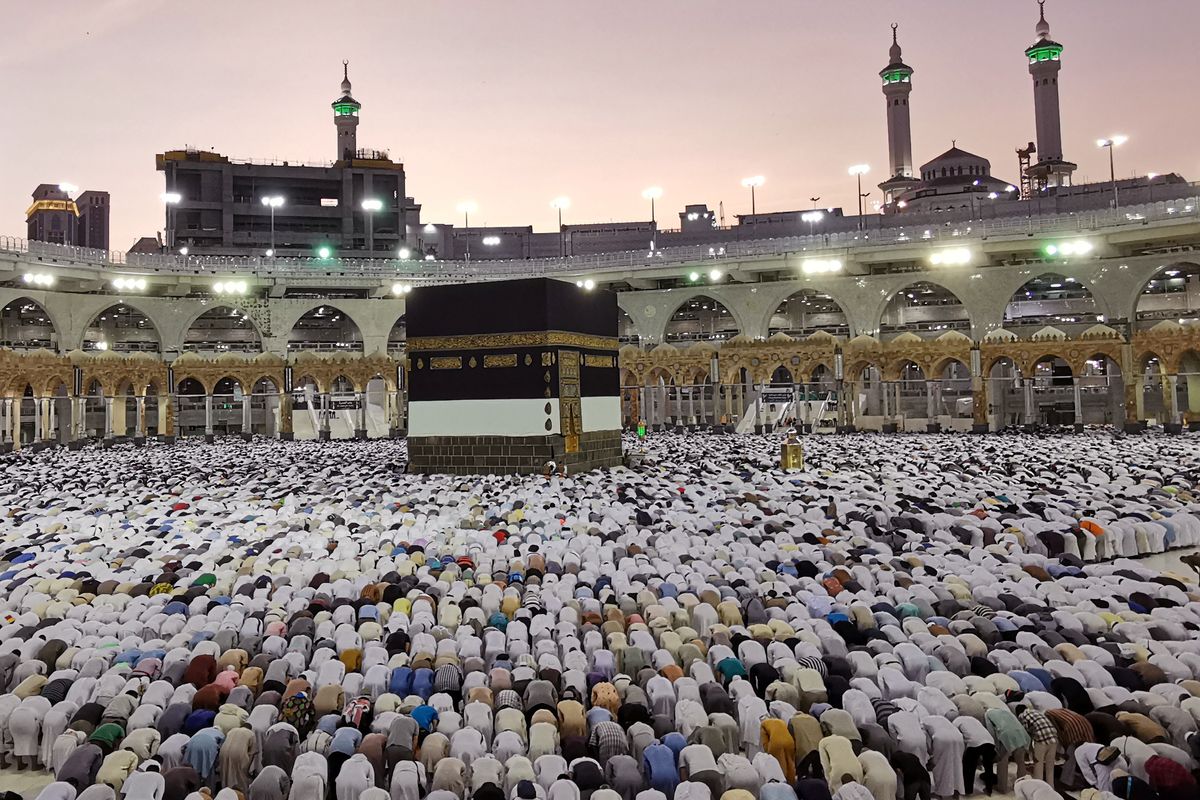Is the Hajj, the Islamic pilgrimage to Mecca, getting too expensive?
The Hajj is the Islamic religious pilgrimage to Saudi Arabia’s Mecca and other nearby holy sites.

A few minutes every morning is all you need.
Stay up to date on the world's Headlines and Human Stories. It's fun, it's factual, it's fluff-free.
The Hajj is the Islamic religious pilgrimage to Saudi Arabia’s Mecca and other nearby holy sites. One of the biggest religious gatherings in the world, it takes place only five days out of the year. This year’s Hajj is also the first time since 2020 that Mecca is open to full capacity, totally lifting COVID restrictions to welcome about 2 million people into the holy city.
Completing the Hajj is one of the five pillars of Islam. Muslim people are supposed to complete all five pillars within their lifetimes, given that they have the money and physical ability to do so. The other pillars are shahādah, the Muslim profession of faith; ṣalāt, or prayer, which a believer does in a specific way five times every day; zakāt, the alms tax that benefits the poor and the needy and ṣawm, which is the fasting period during the month of Ramadan.
During the Hajj, pilgrims perform rituals to show unity with other believers and to pay tribute to God. The religious significance of the Hajj centers around Ibrahim (also known as Abraham), a major figure in Judaism, Christianity, Islam and the Baha’i faith. It’s believed that he and his son, Ismail (Ishmael), built the Kaaba, a big black cube in Mecca symbolizing unity and monotheism, which Muslims all around the world face when they pray. Muslims believe that God told Ibrahim to call for the Hajj pilgrimage to this site.
Unfortunately, global economic instability seems to be catching up with this holy event. Even without COVID restraints, global inflation and economic crises have made it difficult for many Muslims around the world to complete the pilgrimage. Inflation has led to costs mounting for airlines, transportation, food and accommodation in the Mecca area. This year, a few countries had trouble filling the visitor allotments designated to them by Saudi Arabia. Usually, the demand overwhelms these allowances. While some countries subsidize Hajj trips, those subsidies have also been cut – Indonesia’s went from 60% to 50%.
"The number of bookings has significantly dropped this year. It's too costly for many people," explains an employee at a private Egyptian tour operator that arranges Hajj trips. This year, the cheapest government-subsidized Hajj in Egypt costs about US$6,000, about twice as much as last year.




Comments ()